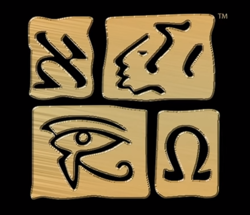
FAIR is a non-profit organization dedicated to providing well-documented answers to criticisms of the doctrine, practice, and history of The Church of Jesus Christ of Latter-day Saints.
m (Bot: Automated text replacement (-{{FME-Source\n\|title=(.*)\n\|category=(.*)\n}} +{{FairMormon}})) |
m (→top: Bot replace {{FairMormon}} with {{Main Page}} and remove extra lines around {{Header}}) |
||
| (2 intermediate revisions by 2 users not shown) | |||
| Line 1: | Line 1: | ||
| − | {{ | + | {{Main Page}} |
<onlyinclude> | <onlyinclude> | ||
==Question: Were revivals and religious excitement too common to be noticed in the newspapers?== | ==Question: Were revivals and religious excitement too common to be noticed in the newspapers?== | ||
| + | {{POGPCentralJSH|title=Religious Excitement near Palmyra, New York, 1816–1820|url=https://www.pearlofgreatpricecentral.org/religious-excitement-near-palmyra-new-york-1816-1820/|number=7}} | ||
===One report of a Methodist camp meeting in Palmyra only made it into the local newspaper because of a fatality due to alcohol consumption=== | ===One report of a Methodist camp meeting in Palmyra only made it into the local newspaper because of a fatality due to alcohol consumption=== | ||
Ironically, evidence for local religious meetings was less likely to be documented in the newspapers because they were so ''common.'' One report of a Methodist camp meeting in Palmyra only made it into the local newspaper because of a fatality due to alcohol consumption. The paper, in a less politically correct time, pointed out that the deceased was Irish and had died due to alcohol at the Camp-ground outside Palmyra: | Ironically, evidence for local religious meetings was less likely to be documented in the newspapers because they were so ''common.'' One report of a Methodist camp meeting in Palmyra only made it into the local newspaper because of a fatality due to alcohol consumption. The paper, in a less politically correct time, pointed out that the deceased was Irish and had died due to alcohol at the Camp-ground outside Palmyra: | ||
| Line 25: | Line 26: | ||
[[es:Pregunta: ¿Los reavivamientos y la excitación religiosa eran demasiado comunes para ser notados en los periódicos?]] | [[es:Pregunta: ¿Los reavivamientos y la excitación religiosa eran demasiado comunes para ser notados en los periódicos?]] | ||
[[pt:Pergunta: Foram revivals e emoção religiosa demasiado comuns para ser notado nos jornais?]] | [[pt:Pergunta: Foram revivals e emoção religiosa demasiado comuns para ser notado nos jornais?]] | ||
| + | [[Category:Questions]] | ||
FAIR Answers—back to home page

Ironically, evidence for local religious meetings was less likely to be documented in the newspapers because they were so common. One report of a Methodist camp meeting in Palmyra only made it into the local newspaper because of a fatality due to alcohol consumption. The paper, in a less politically correct time, pointed out that the deceased was Irish and had died due to alcohol at the Camp-ground outside Palmyra:
The deceased, we are informed, arrived at Mr. McCollum's house the evening preceding, from a camp-meeting which was held in this vicinity, in a state of intoxication....It is supposed he obtained his liquor, which was no doubt the cause of his death, at the Camp-ground, where, it is a notorious fact, the intemperate, the lewd and dissolute part of community too frequently resort for no better object, than to gratify their base propensities.[1]
The Methodists strenuously objected to the implication that their camp meetings where places where people came to get drunk. The Palmyra Register printed a clarification about a week later:
By this expression we did not mean to insinuate, that he obtained it within the enclosure of their place of worship, or that he procured it of them, but at the grog-shops that were established at, or near if you please, their camp-ground. It was far from our intention to charge the Methodists with retailing ardent spirits while professedly met for the worship of their God.[2]
Thus, Joseph's recollection of religious excitement in Palmyra is confirmed at the very edge of the Spring of 1820; very close to the time when he said he prayed to God about religion. [3]
Notes

FAIR is a non-profit organization dedicated to providing well-documented answers to criticisms of the doctrine, practice, and history of The Church of Jesus Christ of Latter-day Saints.
We are a volunteer organization. We invite you to give back.
Donate Now